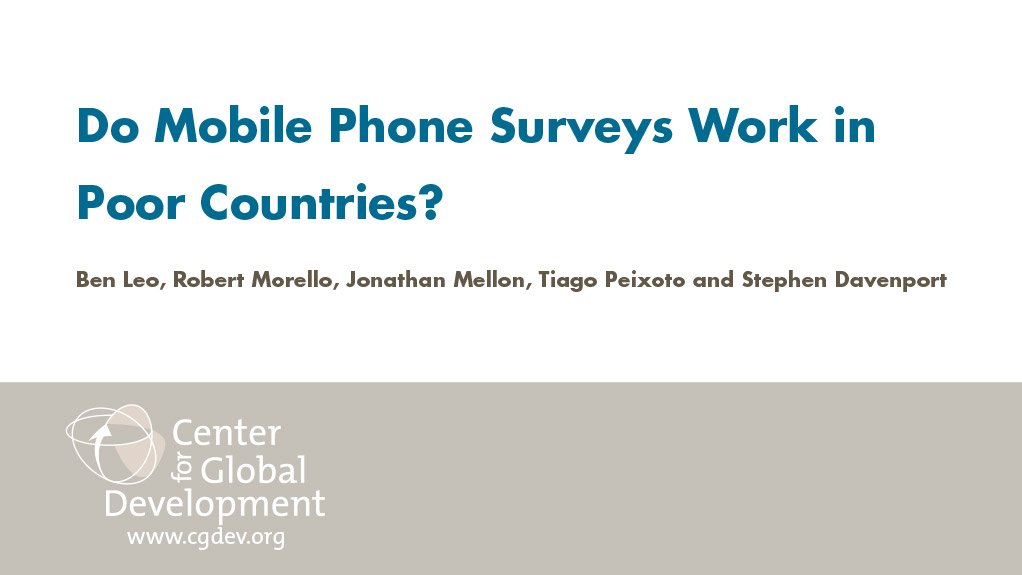- Do mobile phone surveys work in poor countries?0.55 MB
In this project, we analyzed whether mobile phone-based surveys are a feasible and cost-effective approach for gathering statistically representative information in four low-income countries (Afghanistan, Ethiopia, Mozambique, and Zimbabwe). Specifically, we focused on three primary research questions. First, can the mobile phone survey platform reach a nationally representative sample? Second, to what extent does linguistic fractionalization affect the ability to produce a representative sample? Third, how effectively does monetary compensation impact survey completion patterns?
We find that samples from countries with higher mobile penetration rates more closely resembled the actual population. After weighting on demographic variables, sample imprecision was a challenge in the two lower feasibility countries (Ethiopia and Mozambique) with a sampling error of +/- 5 to 7 percent, while Zimbabwe’s estimates were more precise (sampling error of +/- 2.8 percent). Surveys performed reasonably well in reaching poor demographics, especially in Afghanistan and Zimbabwe. Rural women were consistently under-represented in the country samples, especially in Afghanistan and Ethiopia. Countries’ linguistic fractionalization may influence the ability to obtain nationally representative samples, although a material effect was difficult to discern through penetration rates and market composition. Although the experimentation design of the incentive compensation plan was compromised in Ethiopia and Zimbabwe, it seems that offering compensation for survey completion mitigated attrition rates in several of the pilot countries while not reducing overall costs. These effects varied across countries and cultural settings.
Authors: Ben Leo, Robert Morello, Jonathan Mellon, Tiago Peixoto, and Stephen Davenport
Published by The Center for Global Development
EMAIL THIS ARTICLE SAVE THIS ARTICLE
To subscribe email subscriptions@creamermedia.co.za or click here
To advertise email advertising@creamermedia.co.za or click here











